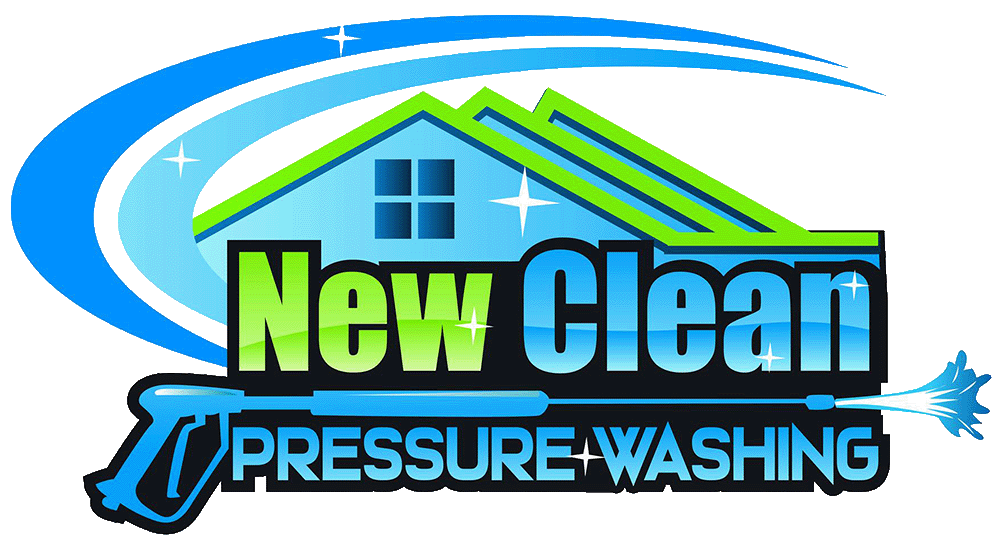For business owners, the exterior appearance of a commercial property is often the first impression potential customers, clients, or tenants will have. One of the key elements in maintaining an appealing, professional image is the cleanliness of your property’s concrete surfaces. Whether it’s a parking lot, sidewalks, loading docks, or building entryways, these high-traffic areas can become worn down, stained, and dirty over time.
Regular commercial concrete cleaning is a simple yet highly effective solution for maintaining your business’s exterior and safeguarding its long-term health. In this article, we’ll explore why routine concrete cleaning is essential for business spaces, the benefits it offers, and how it can directly impact your company’s reputation and bottom line.
Why Commercial Concrete Surfaces Need Regular Cleaning
Concrete surfaces are durable, but they are also highly porous, meaning they can absorb dirt, oils, chemicals, and other contaminants over time. In high-traffic business environments, this accumulation can happen surprisingly quickly. According to our friends at Runyan Surface Prep, the most common culprits include:
- Dirt and Debris: Foot traffic, vehicle tires, and environmental factors such as wind and rain can deposit dirt and debris on concrete surfaces, leading to a dull, grimy appearance.
- Oil and Grease Stains: Parking lots and loading areas are particularly susceptible to oil and grease stains from vehicles. These stains not only look unsightly but can also degrade the surface over time.
- Chewing Gum and Food Residue: For businesses in the food and hospitality sectors, concrete surfaces around outdoor seating areas or entrances can quickly become littered with chewing gum, food stains, and spills.
- Rust and Mineral Stains: Water runoff from irrigation systems, leaking pipes, or nearby metal structures can leave rust or mineral deposits on concrete surfaces.
- Mold, Mildew, and Algae: In shaded or damp areas, mold, mildew, and algae can thrive, leading to green or black discoloration. These substances can be slippery when wet, creating safety hazards for both employees and customers.
- Graffiti and Paint Marks: Unfortunately, commercial properties can be prime targets for graffiti. Even small paint marks can be hard to remove without proper cleaning equipment and solutions.
Left unchecked, these substances can lead to permanent stains, deterioration of the concrete surface, and even costly repairs. Regular cleaning helps to mitigate these risks while maintaining the aesthetic appeal and safety of your business property.
The Benefits of Regular Commercial Concrete Cleaning
Now that we’ve established the importance of keeping your concrete surfaces clean, let’s dive deeper into the specific benefits of regular concrete cleaning for your business.
1. Enhances Curb Appeal and Brand Image
First impressions are crucial for businesses, especially those that rely on foot traffic, such as retail stores, restaurants, or office complexes. The cleanliness of your property plays a significant role in shaping how potential customers perceive your business. Dirty, stained, or unkempt concrete can send the wrong message, suggesting a lack of attention to detail or care.
Regular concrete cleaning helps to create a welcoming environment for customers, clients, and employees alike. Clean, well-maintained sidewalks, parking lots, and entryways reflect positively on your brand, giving the impression that you take pride in your business and value cleanliness and professionalism.
2. Increases Safety and Reduces Liability
Slips, trips, and falls are some of the most common causes of workplace injuries. Dirty or slippery concrete surfaces can pose serious safety hazards, especially in areas with high foot traffic or where spills and wet conditions are common. For example, oil stains in a parking lot or algae growth on a walkway can create dangerous conditions for employees and customers.
Regular concrete cleaning not only removes these hazards but also helps maintain the surface’s traction, reducing the likelihood of accidents. This proactive approach to safety can significantly reduce your liability risk, protecting your business from potential lawsuits or worker’s compensation claims related to slips and falls.
3. Extends the Lifespan of Your Concrete
Concrete is a durable material, but like any other building material, it is subject to wear and tear. Regular exposure to dirt, oils, chemicals, and environmental factors can cause concrete surfaces to deteriorate over time. Without regular cleaning and maintenance, contaminants can penetrate the surface, leading to cracks, erosion, and even structural damage.
By scheduling routine cleanings, you can remove harmful substances before they cause long-term damage. This not only preserves the integrity of your concrete but also extends its lifespan, saving you money on costly repairs or replacements down the line.
4. Complies with Health and Safety Regulations
Depending on the nature of your business, you may be subject to certain health and safety regulations that require you to maintain a clean and safe environment. For example, foodservice businesses must adhere to strict sanitation standards, both indoors and outdoors. Regular concrete cleaning can help ensure that your property meets these standards, preventing potential fines or violations.
Additionally, maintaining a clean exterior demonstrates your commitment to health and safety, which can enhance customer trust and loyalty.
5. Protects Against Pests
Dirty, neglected concrete areas can attract pests such as rodents, birds, and insects. Trash, food spills, and standing water on concrete surfaces create the perfect breeding ground for these unwanted visitors. Pests can not only damage your property but also create unsanitary conditions that may pose health risks to employees and customers.
Regular cleaning helps eliminate the food sources and habitats that attract pests, keeping your business property clean and pest-free.
How Often Should You Clean Commercial Concrete?
The frequency of concrete cleaning depends on several factors, including the type of business, the volume of foot or vehicle traffic, and the local climate. Here are some general guidelines to help you determine how often you should clean your commercial concrete surfaces:
- High-Traffic Areas: For businesses with high foot traffic, such as retail stores, restaurants, and office complexes, it’s recommended to clean concrete surfaces at least once every three months. In some cases, monthly cleaning may be necessary, especially for entryways and parking lots.
- Parking Lots and Garages: Oil stains, tire marks, and vehicle emissions can quickly build up in parking areas. Regular cleaning every three to six months is ideal for keeping these spaces clean and preventing long-term damage to the concrete.
- Outdoor Dining Areas: For restaurants or cafes with outdoor seating, cleaning should occur monthly or even weekly to keep the area hygienic and free of food stains, gum, and other debris.
- Industrial Facilities: Concrete surfaces in industrial settings, such as warehouses and factories, may require more frequent cleaning due to exposure to chemicals, heavy machinery, and industrial debris. Monthly or bi-monthly cleaning is recommended to maintain a safe and functional environment.
- Climate Considerations: In regions with heavy rainfall, snow, or extreme heat, concrete surfaces may need more frequent cleaning to prevent algae growth, rust stains, or cracking from temperature fluctuations.
Professional Cleaning vs. DIY
While some businesses may attempt to clean their concrete surfaces in-house, hiring a professional concrete cleaning service is often the better option. Professional cleaners have the equipment, expertise, and cleaning solutions needed to effectively remove tough stains, dirt, and debris without damaging the concrete.
Pressure washing is one of the most common methods used for cleaning commercial concrete. However, if done incorrectly, pressure washing can cause more harm than good. Professionals know how to adjust the pressure and use the right detergents to clean your concrete safely and thoroughly.
Hiring a professional service also saves time and labor, allowing your employees to focus on their regular tasks while ensuring that your property is kept in pristine condition.
Conclusion
Regular commercial concrete cleaning is a crucial aspect of maintaining a clean, safe, and professional business environment. From enhancing curb appeal to reducing safety risks, protecting your concrete’s lifespan, and complying with regulations, routine cleaning offers a range of benefits that can positively impact your business.
By investing in regular cleaning, you not only safeguard the long-term health of your property but also create a welcoming atmosphere for customers and employees, boosting your brand’s reputation and success. Whether you choose to clean your concrete in-house or hire professionals, keeping these surfaces in top condition should be a priority for every business owner.


